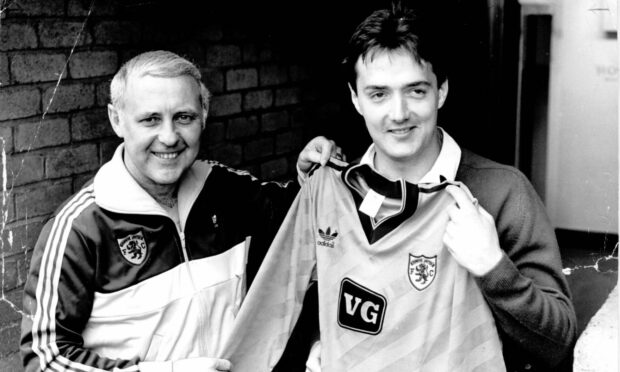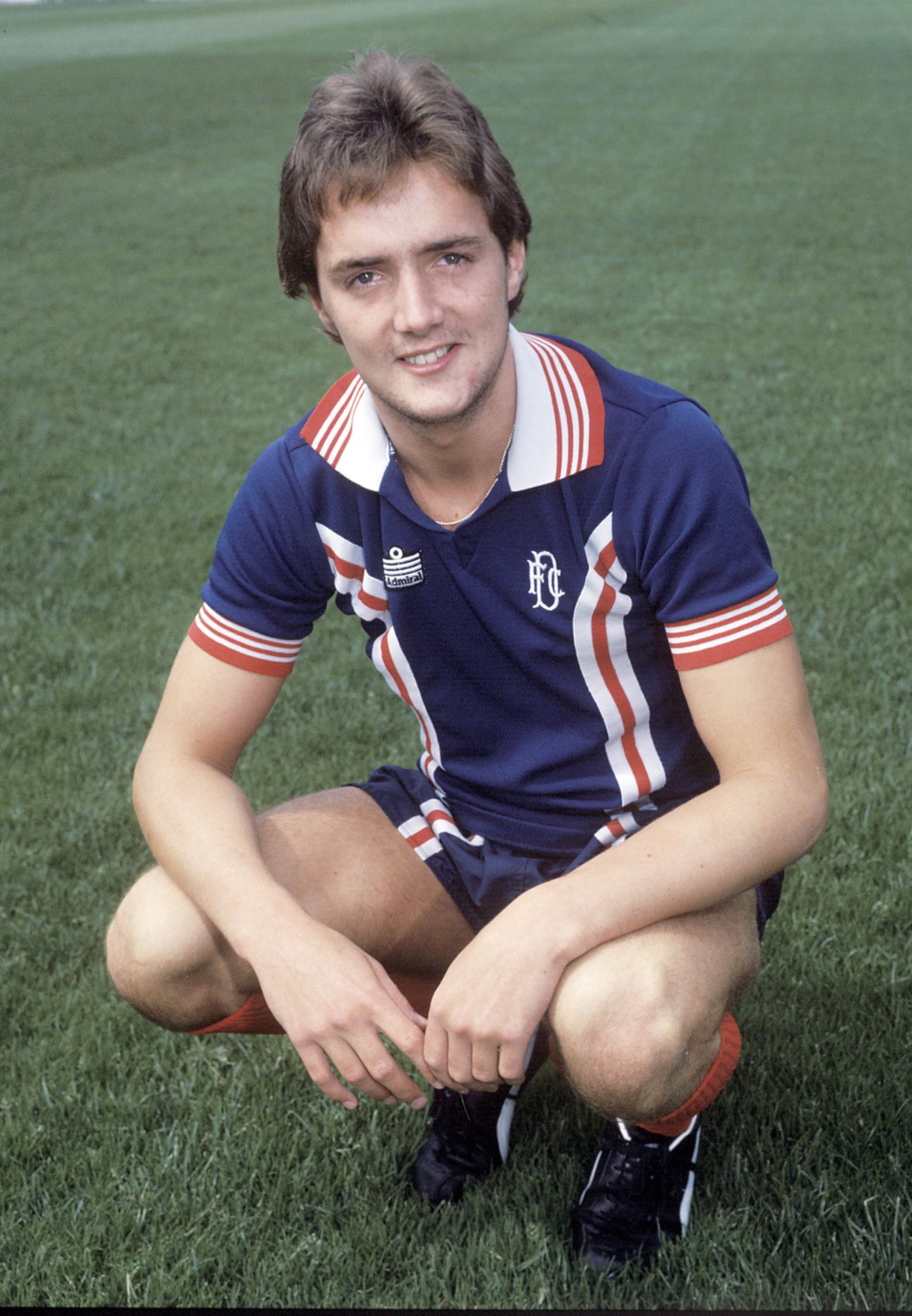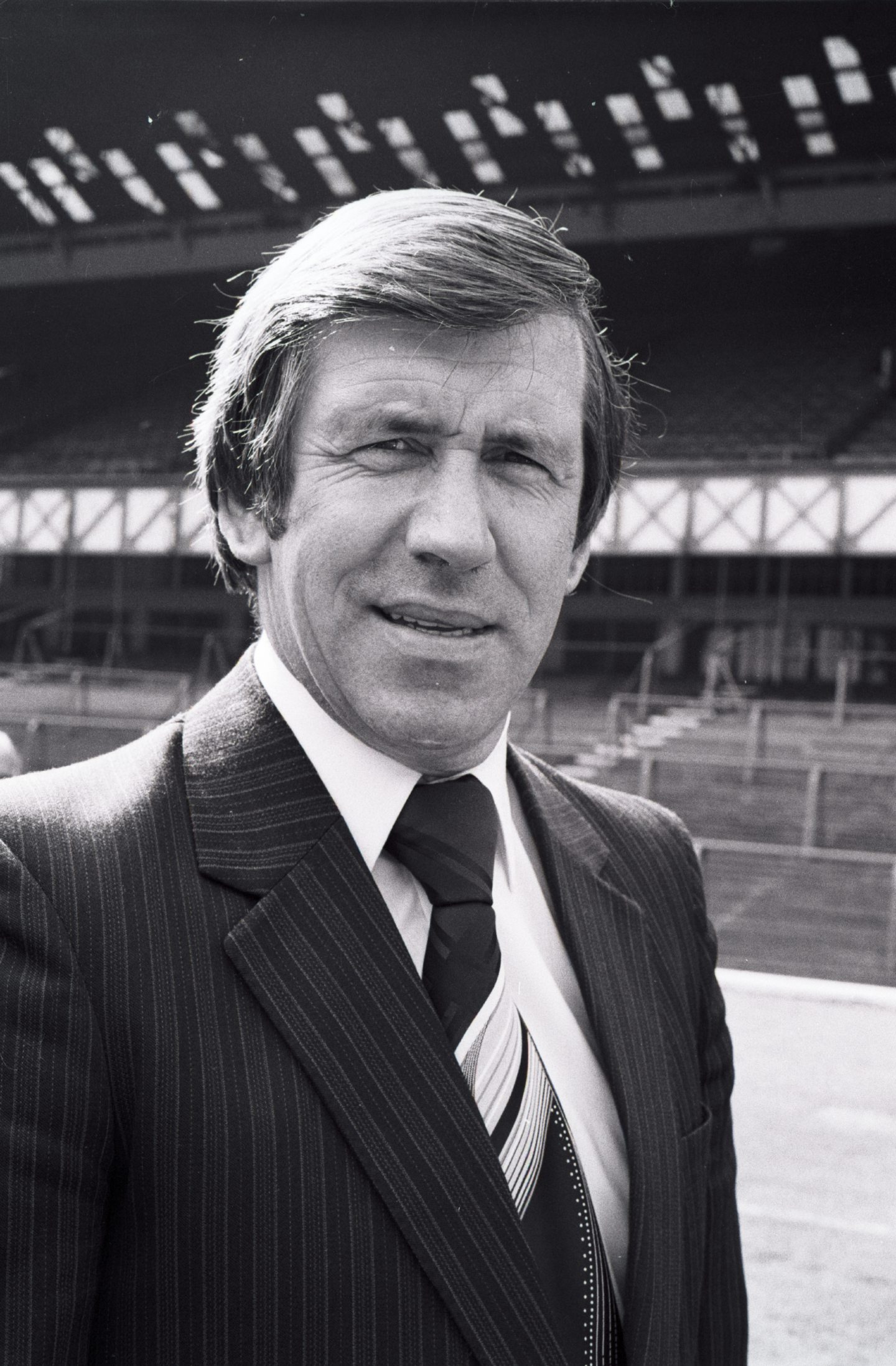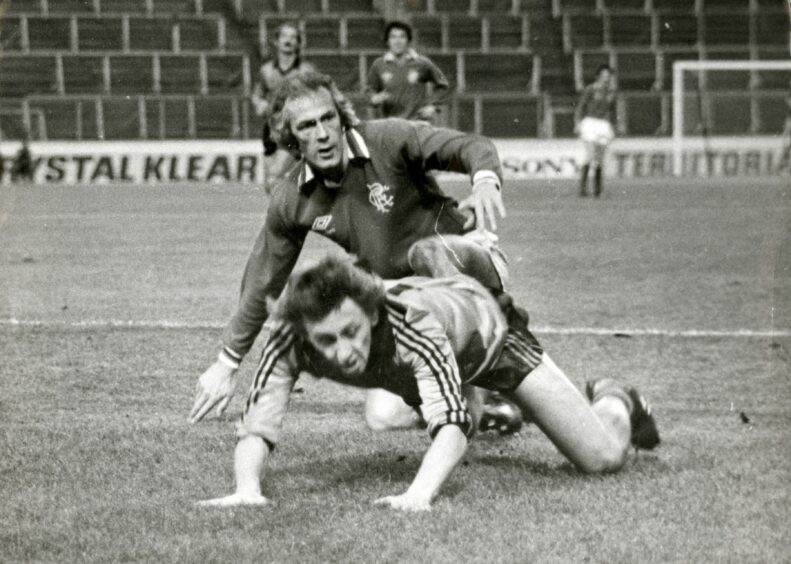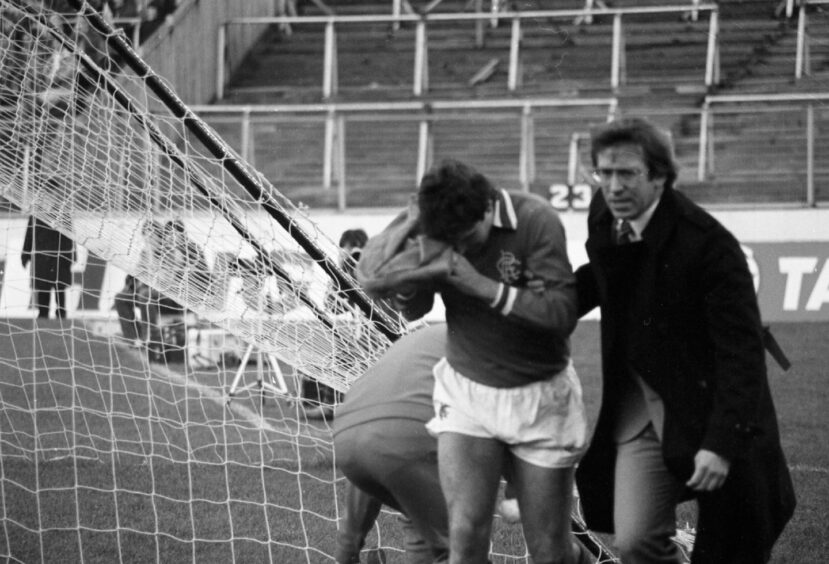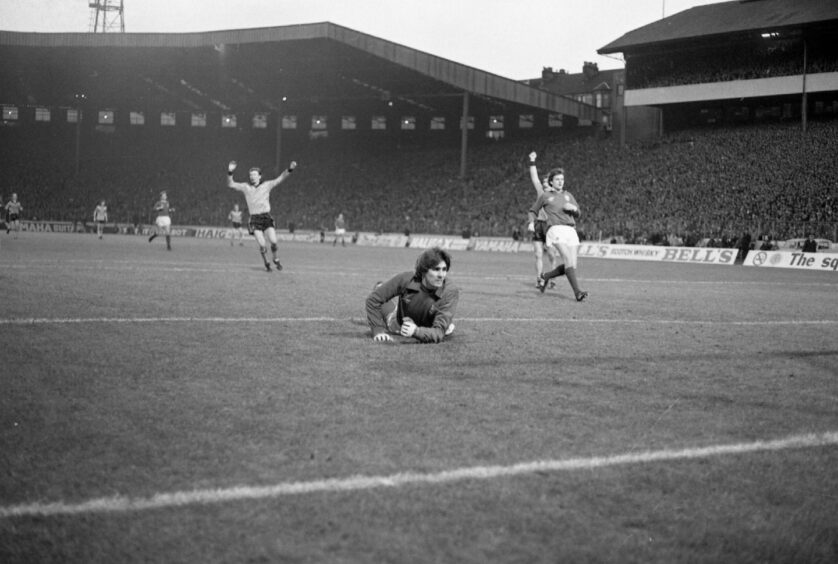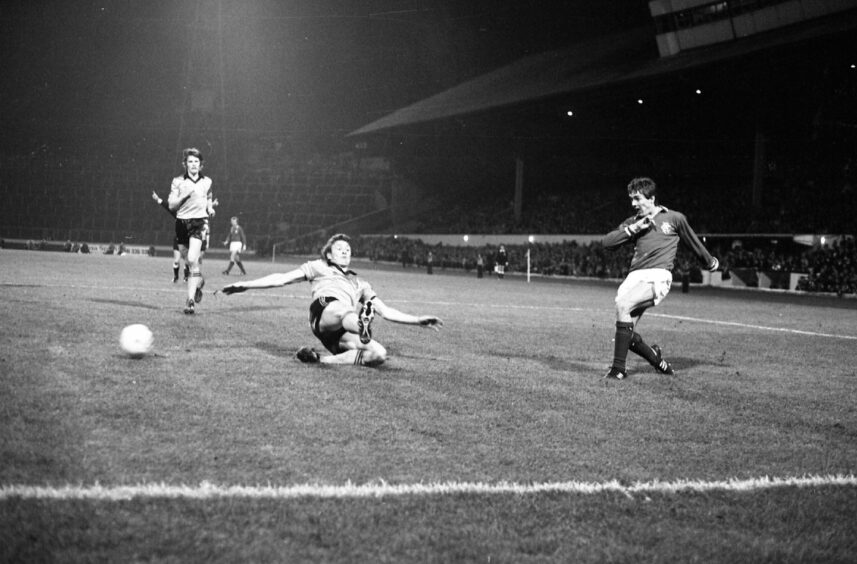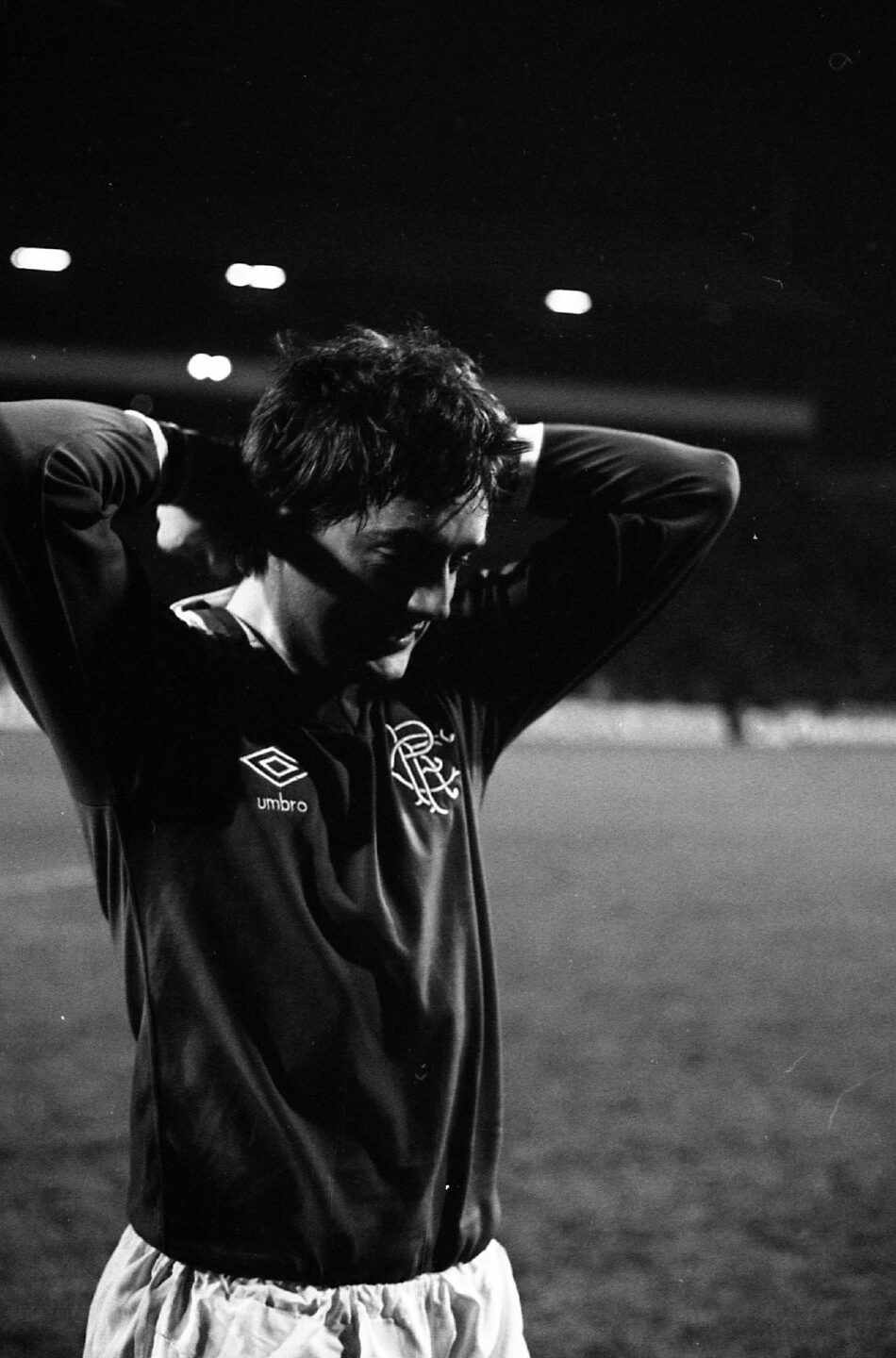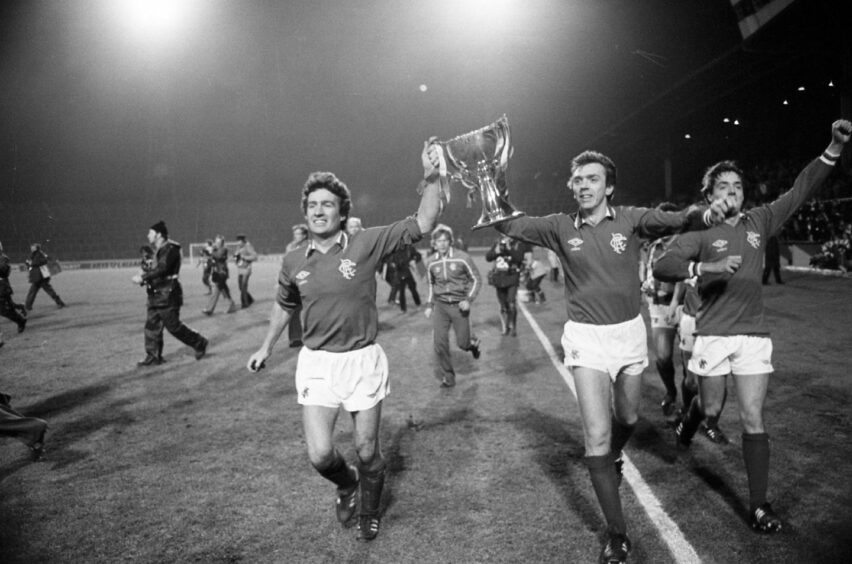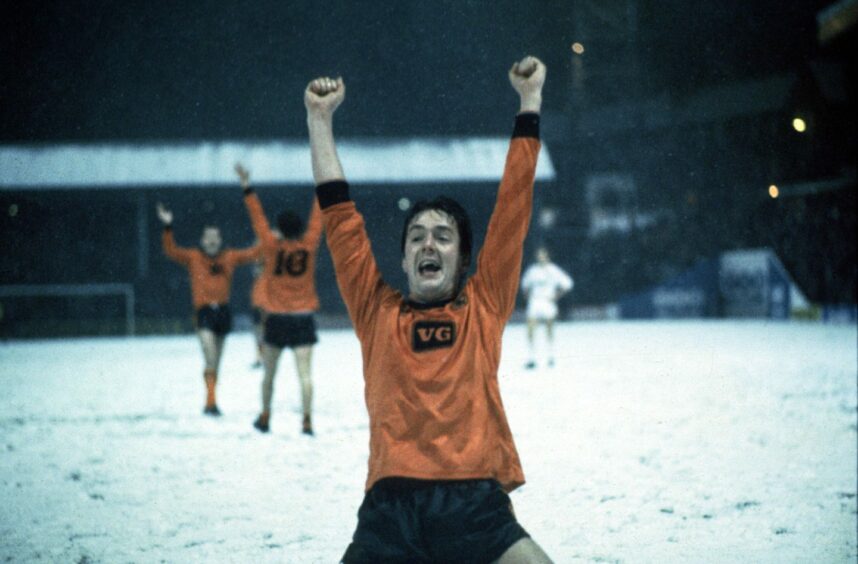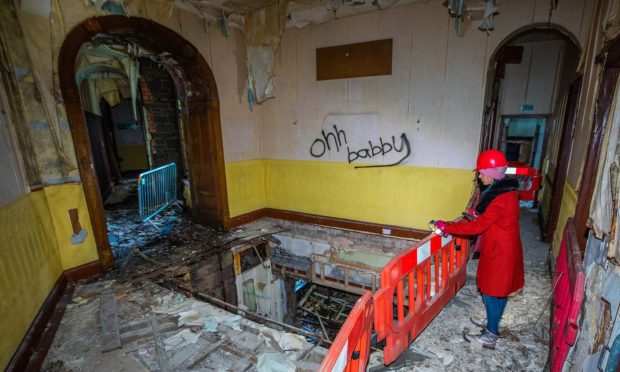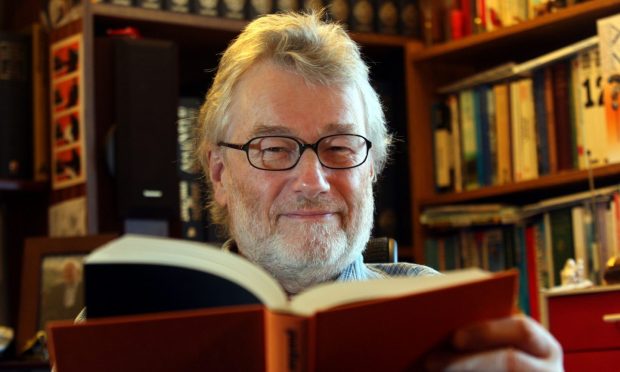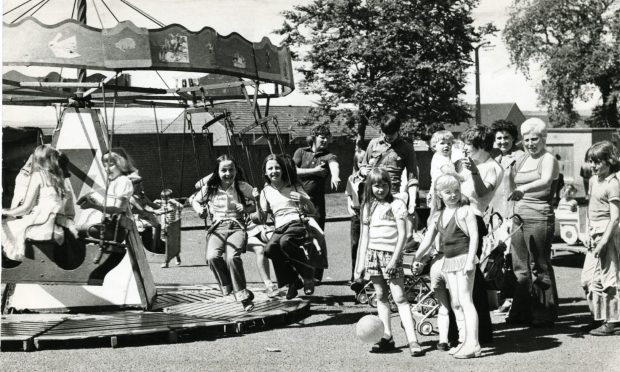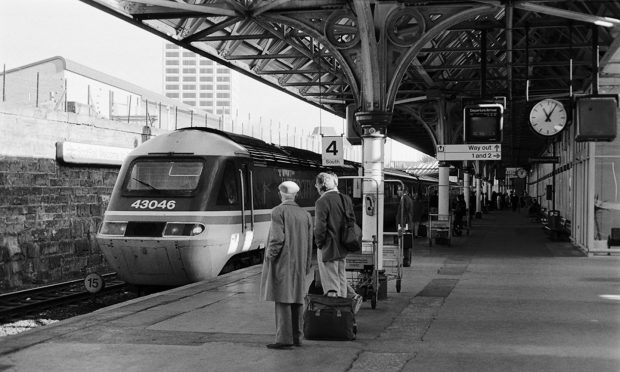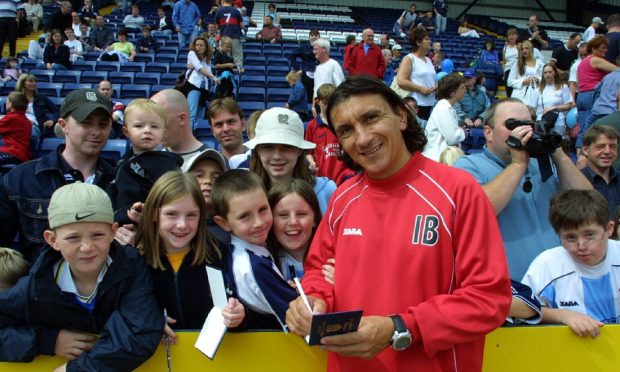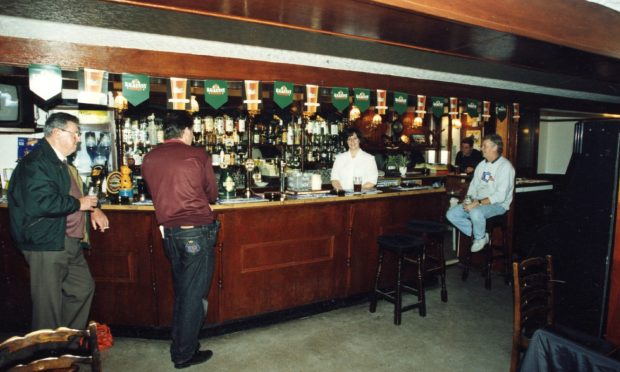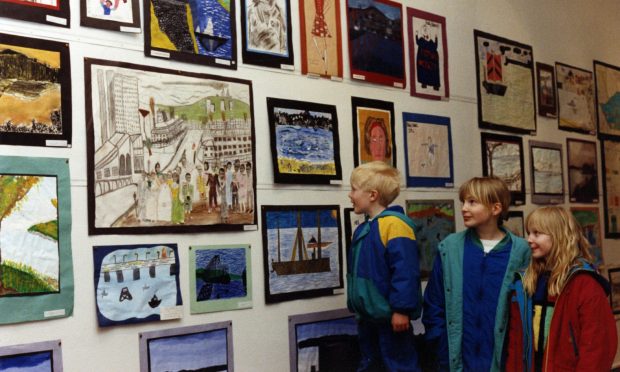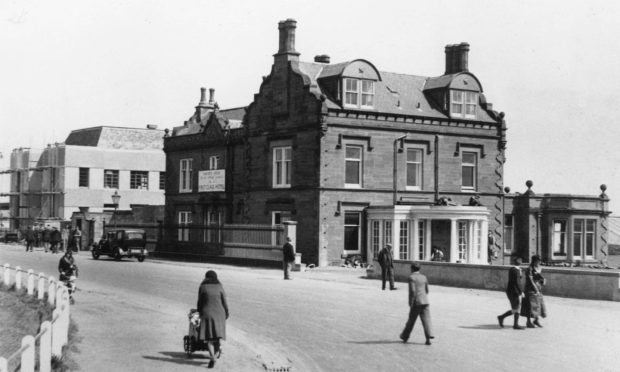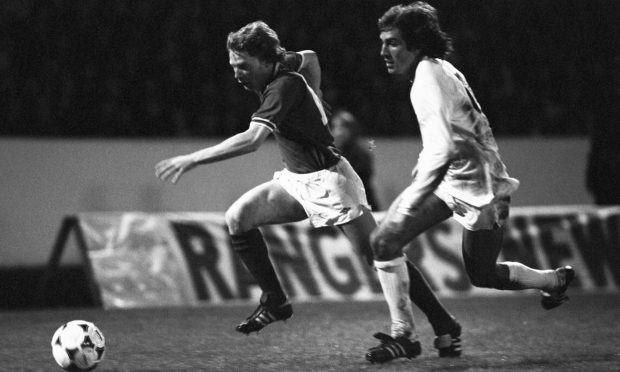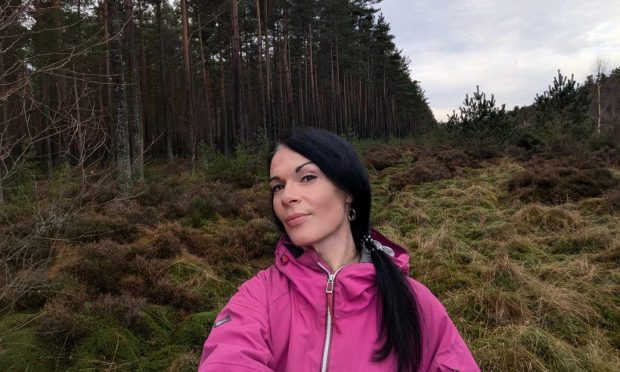Ian Redford got his revenge on Hamish McAlpine 40 years ago and sank Dundee United’s hopes of a unique hat-trick of League Cup successes.
Perth-born Redford returned to Hampden on November 28 1981 with a point to prove.
There was history between McAlpine and Rangers midfielder Redford.
The same opponents contested the Scottish Cup Final six months previously, when Redford struck a last-minute penalty straight at McAlpine’s legs.
His blushes were spared when Rangers won the replay 4-1.
United started the 1981/82 season in goalscoring form including a 6-4 aggregate victory over Monaco and 5-2 win over two legs against Borussia Möenchengladbach in Europe.
United scored 25 goals on their way to the 1981 League Cup Final, where opponents Rangers were looking to win the trophy for the 11th time.
United were the form side and warmed-up for their Hampden clash with four league wins in succession including a 2-0 home victory against Rangers.
Jim McLean’s men were looking to achieve a hat-trick of League Cup successes following victories against Aberdeen in 1979 and Dundee in 1980 at Dens Park.
“Although it’s important for us to hold on to the trophy, it’s vital for both clubs to give Scottish football another boost,” said McLean.
“My players now have every confidence in their ability and it is up to them to use that confidence and do themselves justice on the day.”
Rangers manager John Greig was in confident mood before kick-off despite goalkeeper Peter McCloy and defender Tom Forsyth being ruled out through injury.
“We know all about United and the quality of their play but Hampden will be full of Rangers supporters and we fully expect to win,” he said.
Rangers’ long-serving defender Sandy Jardine broke it down further.
“United have won the cup the last two seasons, but they have beaten Aberdeen and Dundee in the finals at Dens Park,” he said.
“Taking nothing away from them, they will find a big difference this time.
“It’s shaping up to be a great game, as our matches tend to be.
“I agree it’s a bonus for me still to be winning cup medals.
“But even though I’ve won 10 cup medals already, I can assure you I would get as much of a kick from lifting number 11 as I’ve had from all the rest.”
McLean went with experience at Hampden with Derek Stark back in the side and youngsters Richard Gough and Maurice Malpas on the bench.
Jim Stewart started in goal for Rangers with 19-year-old Gordon Dalziel partnering Derek Johnstone in attack after scoring against Celtic in a 3-3 draw.
Dundee United: McAlpine, Holt, Stark, Phillip, Hegarty, Narey, Bannon, Milne, Kirkwood, Sturrock, Dodds. Subs: Gough, Malpas.
Rangers: Stewart, Jardine, Miller, Stevens, Jackson, Bett, Cooper, Russell, Johnstone, Dalziel, MacDonald. Subs: Redford, Mackay.
The match was played before 53,777 fans and would go to penalty kicks to decide the winners for the first time ever, if there was a draw after 90 minutes.
Paul Sturrock missed the chance to put United ahead in the first minute when he shot wide of Stewart’s left-hand post after latching on to a through ball.
Rangers hit back immediately and a move between Alex Miller and John MacDonald ended with Derek Johnstone heading straight at Hamish McAlpine.
Johnstone suffered a gash above his eye after going up for the header, which prompted John Greig to take to the pitch to check how serious it was looking.
Substitute Redford got stripped and stood on the touchline.
But Greig decided against a change and Rangers played for eight minutes with 10-men while Johnstone was stitched up before returning with a plaster over his eye.
Milne, Sturrock and Dodds were all posing threats to the Rangers defence in the early stages thanks to good work on the wing by Bannon.
United went close twice in quick succession.
Kirkwood shot hurriedly past the post from a clever Sturrock flick before Milne fired wide of Stewart’s goal following a move between Bannon and Dodds.
United were playing some brilliant football.
Stewart dived at Sturrock’s feet to prevent United going in ahead at the break.
United took the lead on 49 minutes when Sturrock sent Milne away on the right and he ran 30 yards before shooting low with his left foot past Stewart.
On 54 minutes Sturrock crashed home a 25-yarder to put United 2-0 up, before the linesman controversially put his flag up for offside against John Holt.
United were shell-shocked and Rangers turned the tables as Dalziel, Stevens and MacDonald all went close to scoring the equaliser.
Cooper and MacDonald were now beginning to find space on the wings.
On 73 minutes Redford came on for Dalziel, who was suffering from a thigh knock.
He was only on the pitch a minute when Hegarty pulled MacDonald down on the edge of the box and Cooper netted the equaliser with a stunning free-kick.
Both sides were now going for the winner but Rangers looked dangerous and Johnstone was unlucky to see his shot hit the post in the closing stages.
Redford was the cup final hero when his memorable last-minute chip from the edge of the box beat McAlpine all ends up to give Rangers the trophy.
Redford’s fascinating 2013 autobiography revealed he was tucking into a box of chocolates in the dugout before being brought on by Greig!
He said: “I nearly choked on the last remaining chocolate as I stumbled out of the dugout.
“I had been on the pitch no more than seconds when Davie Cooper equalised.
“Suddenly, from munching chocolates in depression, I had only one thing on my mind – scoring the winner.
“It all happened within a split second.
“As I controlled he ball, I was aware of a gap just inside the top left of the United goal.
“My first touch had been good but my second touch was even better.
“I knew in an instant.
“My lifelong dream came true.
“I had just scored the winner in the last seconds of a cup final!
“In front of me were all those Rangers fans who had witnessed that last-minute penalty miss.”
The 1981 League Cup Final was the highlight of Redford’s five-year Rangers career, which started in February 1980 after signing for £210,000 from Dundee.
Nicknamed the Sundance Kid during his spell at Dens, the 25-year-old midfielder was allowed to leave Ibrox when Jock Wallace took charge in 1985.
Redford signed for Dundee United, where he played some of his best football.
He became a midfield regular under Jim McLean and went on to make 155 appearances and score 32 goals.
With United, he picked up runners-up medals in the Scottish Cup and Uefa Cup.
It was his goal against Borussia Möenchengladbach, in the final minutes of a semi-final away leg, that clinched the famous date against IFK Gothenburg in 1987.
His career wound down with Ipswich Town, St Johnstone, Brechin City and Raith Rovers, where he won a League Cup medal in 1995 against Celtic.
Redford took his own life in 2014 following decades struggling with depression.
Football lost a true gentleman.
He remains as fondly remembered by United fans as he is by Rangers supporters.
More like this:
Monaco or bust? When Dundee United boss Jim McLean fined his players after Uefa Cup heroics
Rangers broke Dundee United legend Jim McLean’s heart in forgotten ‘family final’
